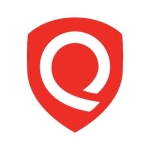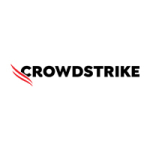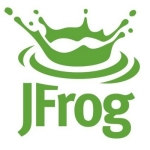What is our primary use case?
We utilize the entire Prisma Cloud suite for container security, API security, and CASB. Our primary focus is on the financial services industry, including banking and insurance.
We implemented Prisma Cloud mostly for compliance to protect against vulnerabilities and weaknesses.
How has it helped my organization?
Prisma Cloud's compliance is extremely important to our customers.
Prisma Cloud offers comprehensive security across multi-cloud environments. This is crucial due to the increasing trend of cloud adoption and digital migration. However, some clients still maintain a hybrid footprint across various platforms like Azure, AWS, and Google Cloud. To address this, Prisma Cloud's technology extends to secure hybrid environments effectively. Its coverage goes beyond traditional one-size-fits-all solutions and encompasses both public and private cloud infrastructures.
It offers approximately 80 percent coverage for securing the entire cloud-native stack. While they boast a robust "shift left" component through their API, other products in this space are equally competitive. However, if seeking a single solution that addresses the majority of our needs, Prisma Cloud presents a strong option, especially considering the diverse technologies within our cloud footprint. Additionally, if we choose to standardize Palo Alto across our entire infrastructure, Prisma Cloud integrates seamlessly with other modules within their ecosystem. While not claiming to be the best-of-breed solution in every aspect, Prisma Cloud consistently ranks highly in Gartner reports for most of its functionalities, providing a solid foundation for technology consolidation.
It is a leading full automation product. Their SOAR technologies offer a vast array of integrations, all well-designed and ready to use out of the box. This suggests their overall automation capabilities are indeed top-notch.
Prisma Cloud excels in its field. I believe their solution covers detection and prevention in a world-leading manner. They largely deliver on their promises, demonstrating reliable performance. Additionally, they offer excellent support resources, including comprehensive online documentation, training programs, and a robust learning management system. Their onboarding and development programs are also commendable, providing users with the resources and support they need to succeed.
Our customers' organizations are enhanced because Prisma Cloud improves their compliance posture, particularly for those with SOC teams. It provides valuable insights and seamless integration, offering peace of mind that all security bases are covered.
Although the benefits of Prisma Cloud can be observed within three to six months after deployment, this timeframe may be extended for mature clients who prioritize rapid deployment. It is during the post-deployment phase, which typically lasts three to six months, that the full range of benefits becomes apparent.
Prisma Cloud does a good enough job of consolidating technology for our customers.
It integrates seamlessly with other Palo Alto products and provides one tool to protect all cloud resources.
Prisma Cloud helps provide clarity across our entire pipeline.
Prisma Cloud helps reduce runtime alerts by 50 percent and reduces investigation time for our customers by 40 to 50 percent. There is much less lifting for the operations team.
What is most valuable?
The two most valuable features are container security and the capability to discover workloads. Many organizations struggle to track workloads that spin up and down frequently. This solution enables real-time evaluation and scanning of workloads as they come online and shut down.
What needs improvement?
The regional cost of Prisma Cloud in South Africa is high and could be improved. Since it is marketed based on a dollar base, it is primarily an enterprise product and may not be affordable for smaller organizations.
As a software development company looking to secure our cloud-hosted APIs before publishing them, we believe that Palo Alto might overstate its capabilities. We have identified competitive products in the market that offer better protection throughout the software development lifecycle. From a developer's perspective, especially for organizations like banks developing their applications, ensuring API security before deploying them to the cloud is crucial. While Palo Alto claims to excel in this area, we believe that other specialized products may offer a more comprehensive solution.
For how long have I used the solution?
I have been using Prisma Cloud by Palo Alto Networks for three years.
What do I think about the stability of the solution?
Prisma Cloud has excellent stability. From a product perspective, they strive to stay ahead of the curve regarding vulnerabilities and other issues. I receive regular email updates, approximately four times a week, informing me of any discovered vulnerabilities. Additionally, they provide articles on new releases or micro releases for patching these vulnerabilities.
What do I think about the scalability of the solution?
I would rate the scalability of Prisma Cloud nine out of ten.
How are customer service and support?
The technical support team has a well-developed portal with consistently updated online documentation. The forum articles are also well-maintained and provide a massive footprint of information. Additionally, the testing forum exhibits a high level of activity, further demonstrating the abundance of available resources.
How would you rate customer service and support?
How was the initial setup?
While the product itself is not complex, its implementation can be challenging due to factors such as the customer's existing environment, security posture, and understanding of their network and ecosystem. This lack of awareness can lead to unforeseen complexities during the scoping and planning stages. However, a more mature client who is well-versed in their environment will typically experience a smoother deployment.
The deployment time varies depending on the organization's size, but it typically takes one to three months from planning to launch. While further optimization is still required after launch, the initial setup is relatively quick.
We have a well-defined philosophy that is not complex. The first phase is the planning and design stage, where we uncover all the requirements and details of the project landscape. From there, we develop a comprehensive scope of work that includes the project architecture, deployment strategy, roles and responsibilities, and a risk assessment. The client then enters the site preparation phase, where they address any necessary repairs to their infrastructure. We then conduct a site readiness assessment to ensure that everything is prepared for deployment. The fourth step is the deployment phase, which we implement in phases depending on the specific project. We typically deploy, conduct a testing cycle, and obtain sign-off. In some cases, depending on the environment, a pilot phase may be necessary. After a successful pilot, the project goes to full deployment, followed by final testing and documentation. We also offer online training to the client during the deployment phase. Additionally, we provide ongoing knowledge transfer throughout the project and beyond. Finally, we close out the project with comprehensive documentation.
Our typical deployment team includes a subject matter expert or architect, a senior engineer, and a project manager. The subject matter expert or architect may be a cloud engineer or a network engineer, depending on the specific project requirements.
What's my experience with pricing, setup cost, and licensing?
We are encountering some resistance in the African market regarding the cost of Prisma Cloud. The lack of a regional pricing model contributes to this concern, and we believe the current cost is slightly too high for the market.
It depends on our reseller or preferred solution provider. The deployment and support costs are also factors to consider. Additionally, they offer professional services for the SKUs we purchase, which includes assistance with planning, design, technology onboarding, and scoping. So, the cost goes beyond just the license fee. Typically, the additional cost for professional services to help with implementation ranges from 15 to 20 percent of the license cost.
What other advice do I have?
Prisma Cloud by Palo Alto Networks earns a solid eight out of ten from me. The licensing models are well-designed and the technology scales effectively. While the pricing makes it an enterprise-level solution, its capabilities are technically suitable for organizations of all sizes. However, the high cost may not be financially justifiable for small businesses. Despite this, the product's technical capabilities allow it to seamlessly scale down to cater to small footprints while remaining robust enough for large enterprises.
We find that some of our customers may stick some technologies together to build their confidence as a compromise.
Our customer environments vary from 500 users and a couple of hundred workloads to 32,000 users and 2,000 workloads across multiple clouds. We typically run Prisma Cloud at an enterprise scale because of the affordability.
There are two types of support: operational and product. Product support is dependent on the supplies provided by our license. However, we also offer solution support, which sometimes involves interpreting reports and explaining what customers see. The amount of maintenance required depends on the customer's maturity, but it generally only takes a couple of hours per week. Two cybersecurity engineers are required for maintenance.
In our region, we have seen some management changes, and we find that the pricing remains extremely high and aggressive. Specifically in South Africa, Check Point has lost significant market share to Palo Alto. However, this rapid growth phase is now decelerating. The market in South Africa is limited in size, encompassing only a finite number of banks, insurance companies, and large enterprises. Many of these players have already switched to Palo Alto, leaving fewer attractive targets for Check Point. This decreased market potential will likely force Palo Alto to re-evaluate its pricing models. From a business perspective, there is often a pressure to continually outperform the previous year. This, combined with the high operating costs associated with their teams, has arguably led to a level of greed within the company, driving the pursuit of ever-increasing profits. However, the limited market size in South Africa poses a challenge to this approach. While Palo Alto enjoyed easy market penetration and rapid growth over the past four to five years, the landscape is now changing. Their previous strategies are becoming less effective, forcing them to adapt and evolve their approach to gain a foothold.
I recommend confidently reviewing Prisma Cloud, understanding your environment, and ensuring it is properly configured. Additionally, budget allocation should be confirmed.
Which deployment model are you using for this solution?
Public Cloud
If public cloud, private cloud, or hybrid cloud, which cloud provider do you use?
Other
Disclosure: My company has a business relationship with this vendor other than being a customer. partner























